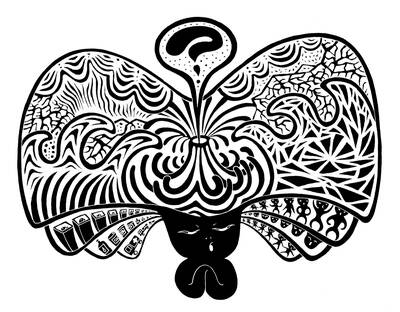An absurd article in Japan’s Nikkei Shimbun recently alleged that 90 percent of the military retirees who served after Chinese Nationalist Party (KMT) forces came to Taiwan in 1949 have, at some point in their careers, collaborated with China in return for financial compensation.
The report said that, for this reason, President Tsai Ing-wen (蔡英文) does not have full command of Taiwan’s military.
The Nikkei report is utterly untrue. It has severely damaged Taiwan’s image in the international community and the dignity of the armed forces. The Japan that Taiwan knows is cautious and attentive to factual information, a characteristic not shown in the Nikkei report.
I am a military retiree. My father came to Taiwan from China and my mother is Taiwanese. I am a second-generation waishengren — a Taiwanese whose recent ancestors came from China.
I was determined since childhood to serve my country in the military. The anti-communist education that I received has deeply influenced me — the slogan “Eliminate the Evil Communist Bandits” has been engraved in my mind for decades.
Preventing espionage and protecting national security was a constant part of life throughout my 35 years of service. Although I retired from the armed forces last year, my ingrained military training has kept me from talking about any official matters. It is impossible for me to risk providing the enemy with Taiwan’s military intelligence.
I participated in the annual Han Kuang military exercises many times, but I have never discussed any of its details with relatives or friends. I am not an exception. A great number of military officers who received a similar education as mine think and behave the same way. Those who have become spies and sold intelligence to China are very few. They have disgraced the name of the armed forces, and we are repelled by them.
Veterans Affairs Council Minister Feng Shih-kuan (馮世寬) retorted that the Nikkei report was “complete nonsense.”
His emotionally charged comment is understandable. As military retirees, we will risk our lives for the country, and we will endure all kinds of hardship to defend Taiwan.
For the sake of our dignity and moral character, the Ministry of Defense should demand an explanation from the Nikkei Shimbun. Taiwanese veterans deserve to be treated with justice.
I also call on Taiwanese not to be divided over this issue. Our society is a harmonious, inclusive one, and it must be protected.
Chang Ling-ling is a retired colonel in the armed forces reserves. She is a resident of New Taipei City.
Translated by Liu Yi-hung

Labubu, an elf-like plush toy with pointy ears and nine serrated teeth, has become a global sensation, worn by celebrities including Rihanna and Dua Lipa. These dolls are sold out in stores from Singapore to London; a human-sized version recently fetched a whopping US$150,000 at an auction in Beijing. With all the social media buzz, it is worth asking if we are witnessing the rise of a new-age collectible, or whether Labubu is a mere fad destined to fade. Investors certainly want to know. Pop Mart International Group Ltd, the Chinese manufacturer behind this trendy toy, has rallied 178 percent
My youngest son attends a university in Taipei. Throughout the past two years, whenever I have brought him his luggage or picked him up for the end of a semester or the start of a break, I have stayed at a hotel near his campus. In doing so, I have noticed a strange phenomenon: The hotel’s TV contained an unusual number of Chinese channels, filled with accents that would make a person feel as if they are in China. It is quite exhausting. A few days ago, while staying in the hotel, I found that of the 50 available TV channels,
There is no such thing as a “silicon shield.” This trope has gained traction in the world of Taiwanese news, likely with the best intentions. Anything that breaks the China-controlled narrative that Taiwan is doomed to be conquered is welcome, but after observing its rise in recent months, I now believe that the “silicon shield” is a myth — one that is ultimately working against Taiwan. The basic silicon shield idea is that the world, particularly the US, would rush to defend Taiwan against a Chinese invasion because they do not want Beijing to seize the nation’s vital and unique chip industry. However,

Life as we know it will probably not come to an end in Japan this weekend, but what if it does? That is the question consuming a disaster-prone country ahead of a widely spread prediction of disaster that one comic book suggests would occur tomorrow. The Future I Saw, a manga by Ryo Tatsuki about her purported ability to see the future in dreams, was first published in 1999. It would have faded into obscurity, but for the mention of a tsunami and the cover that read “Major disaster in March 2011.” Years later, when the most powerful earthquake ever